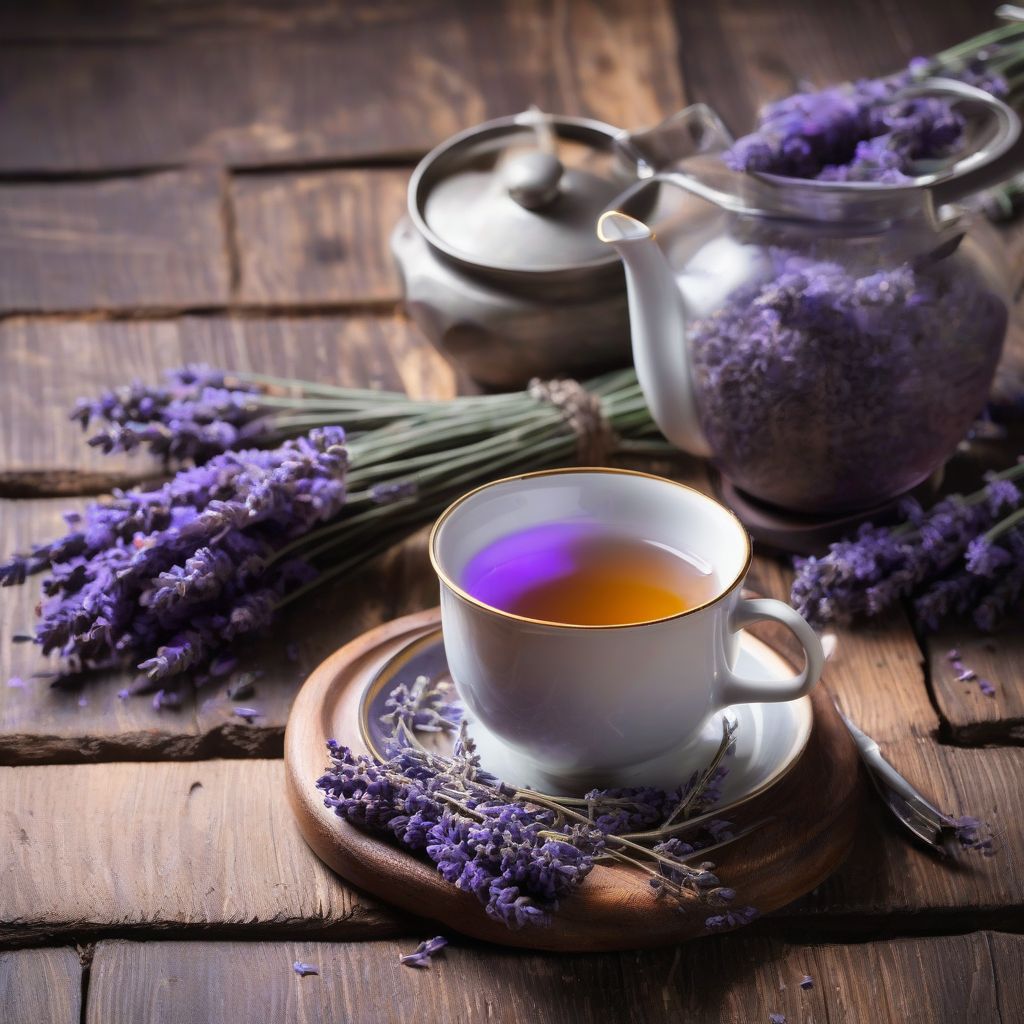We all crave that sense of balance and well-being, that inner peace that helps us navigate life’s ups and downs. As a nutritionist and meal-prep coach, I’ve always believed in the power of a holistic approach to health, one that nourishes not just the body but also the mind.
You might be surprised to know that nature holds incredible gifts to support our mental and emotional health, and they come in the form of herbs! These potent plants have been used for centuries across cultures for their therapeutic properties.
If you’re curious about how to incorporate herbs into your journey towards greater well-being, you’re in the right place. Let’s delve into the world of herbs and discover how they can help us thrive.
Understanding the Mind-Body Connection and the Power of Herbs
Before we dive into the specifics, it’s important to understand that our minds and bodies are deeply interconnected. What we consume, how we move, and even what we think can influence our emotional state.
Herbs work their magic by interacting with our body’s intricate systems, influencing everything from our hormones to our neurotransmitters. Think of them as gentle allies that can bring our systems back into equilibrium, promoting a sense of calm, focus, and emotional resilience.
Herbs for Stress and Anxiety Relief
In today’s fast-paced world, stress and anxiety have become unwelcome companions for many. If you’re feeling overwhelmed, these herbs might be able to offer a helping hand:
1. Ashwagandha: The Adaptogenic Ally
Ashwagandha, an ancient herb used in Ayurvedic medicine, is known for its adaptogenic properties. This means it can help your body adapt to stress more effectively, promoting a sense of calm and reducing anxiety levels.
2. Chamomile: A Soothing Cup of Tranquility
Chamomile, with its delicate white flowers, is often enjoyed as a calming evening tea. It contains compounds that may bind to certain receptors in the brain, promoting relaxation and improving sleep quality.
3. Lavender: A Sensory Journey to Calm
Lavender, with its beautiful purple blooms and intoxicating aroma, is much more than just a pretty flower. Its essential oil, often used in aromatherapy, has been shown to have calming effects on the nervous system, easing anxiety and promoting relaxation.
 Lavender Tea Cup
Lavender Tea Cup
Herbs for Mood Enhancement and Focus
We all experience those days when our mood dips or we struggle to concentrate. These herbs can help brighten your day and sharpen your focus:
1. Lemon Balm: Uplifting the Spirits
Lemon balm, with its refreshing citrusy scent, has been traditionally used to uplift the mood and ease symptoms of mild depression.
2. Rhodiola: Boosting Energy and Resilience
Rhodiola is another powerful adaptogen that deserves a spot in your well-being arsenal. It’s been shown to combat fatigue, enhance mental clarity, and improve resilience to stress.
3. Gotu Kola: Enhancing Cognitive Function
Gotu kola, often referred to as the “herb of enlightenment,” has long been used in traditional medicine to enhance cognitive function. It’s believed to improve memory, focus, and overall brain health.
Herbs for Sleep Enhancement
A restful night’s sleep is essential for our mental and emotional well-being. If you’re struggling to get enough shut-eye, these herbs might offer a natural solution:
1. Valerian Root: A Natural Sleep Aid
Valerian root has been used for centuries as a natural sleep aid. It’s believed to work by increasing levels of a neurotransmitter called GABA, which has calming effects on the brain.
2. Passionflower: Calming the Mind for Rest
Passionflower, with its intricate and beautiful flowers, has traditionally been used to ease anxiety and promote sleep. It’s thought to increase GABA levels in the brain, leading to a more relaxed state.
Incorporating Herbs into Your Daily Routine
You can enjoy the benefits of these incredible herbs in various ways:
- Teas: Brewing a cup of herbal tea is a simple and enjoyable way to incorporate herbs into your routine.
- Tinctures: Tinctures are concentrated herbal extracts that can be added to water or taken directly.
- Capsules: Capsules offer a convenient and tasteless way to consume herbs, especially if you’re on the go.
- Essential Oils: Essential oils can be diffused aromatically or added to a carrier oil for topical application. However, it’s crucial to use them with caution and dilute them properly.
Remember, it’s always best to consult with a healthcare professional before incorporating new herbs into your diet, especially if you’re pregnant, nursing, or taking medications.
A Holistic Approach to Mental and Emotional Well-being
While herbs can be powerful allies in supporting our mental and emotional well-being, it’s important to remember that they work best as part of a holistic approach.
Here are some additional tips for nurturing your mental and emotional health:
- Prioritize Sleep: Aim for 7-8 hours of quality sleep each night.
- Nourish Your Body: Opt for a balanced diet rich in fruits, vegetables, whole grains, and lean proteins.
- Move Your Body: Engage in regular physical activity that you enjoy.
- Manage Stress: Explore stress-management techniques such as meditation, deep breathing, or yoga.
- Connect with Others: Spend quality time with loved ones and build meaningful connections.
Your Journey to Well-being Starts Now
Incorporating herbs into your wellness routine can be an empowering step towards supporting your mental and emotional well-being. These potent plants offer a gentle yet effective way to restore balance, cultivate calm, and enhance your overall well-being.
Remember, your journey to well-being is a personal one. Be patient with yourself, experiment with different herbs, and discover what works best for you. With time and mindful practices, you can create a life filled with greater peace, joy, and resilience.
Disclaimer: I am not a medical doctor, and this information is not intended to diagnose, treat, cure, or prevent any disease. Please consult with your healthcare provider before making any changes to your diet or health routine.
[amazon bestseller=”Herbal Remedies”]
